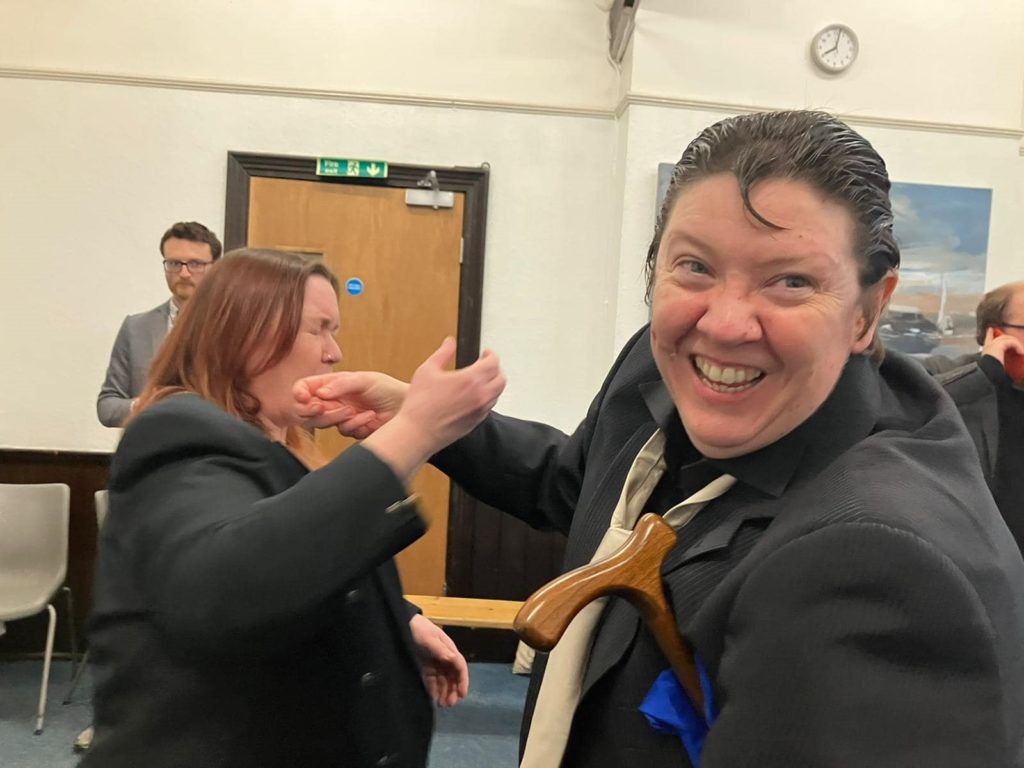
THE first production of York Shakespeare Project’s second cycle of Shakespeare plays opens on Wednesday, directed by York newcomer Dr Daniel Roy Connelly.
As when YSP began its 20-year mission to present all the Bard’s works with John White’s Elizabethan production of Richard III at the Joseph Rowntree Theatre in 2002, so “the York play” will be the opening act of a 25-year new project, this time at Friargate Theatre, Lower Friargate, York as part of the York International Shakespeare Festival.
Dr Connelly, newly moved to the city, is at the helm, having acted and directed in places as diverse as Rome, the United States, the Edinburgh Festival and Shanghai, where his 2009 production of David Henry Hwang’s M Butterfly was forced to close by the Chinese secret police.
This is but one highlight from the diverse career of the former British diplomat (or “Foreign Office office boy” as he calls himself on his podcast). Step forward: theatre director. Actor. Poet. Author. Professor. Teacher. Prospective parliamentary candidate. That all adds up to a polymath.
Now, leading off YSP’s new era of staging Shakespeare’s First Folio and plays by his contemporaries, Dr Connelly is taking on “Shakespeare’s astonishing depiction of Richard III as both physically and mentally deformed, and, as a result, inherently evil”.
His modern-day makeover is set in a frenetic, calculating and brutal 21st century Westminster with its endless Machiavellian bloodletting and daily treacheries. In his contemporary vision, Richard and Buckingham excel as social-media manipulators within a world of warring political parties. “In the shadowy corridors of power, everyone is culpable,” he says.
While on the subject of politics, Dr Connelly will be the prospective parliamentary candidate for the True & Fair Party for York Outer at the next General Election.
To catch a flavour of his philosophy on life, head to The Anarchist Monastery, the podcast he co-presents with Hugh Bernays, the York artist and craftsman who believes “it is better to work under-cover”, although he does surface to do a weekly show.
Here Dr Connelly discusses Richard III, the play, the rotten reputation and relationship with York, York Shakespeare Project, York International Shakespeare Festival, diplomacy, 21st century politics and podcasting with CharlesHutchPress.
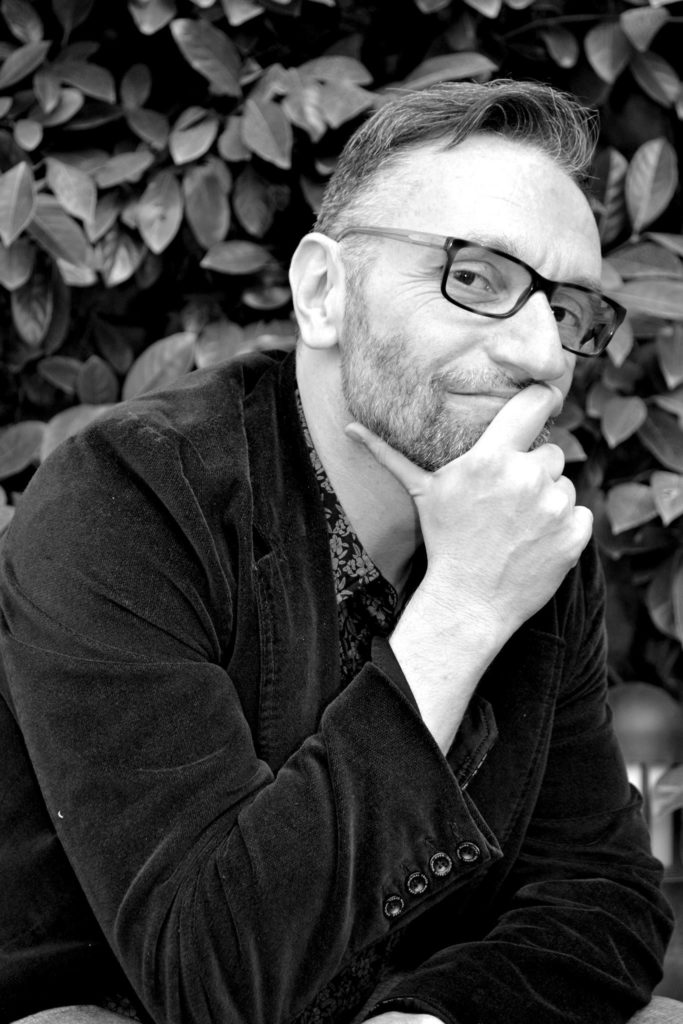
What brought you to York after such an itinerant career, Daniel?
“My son moved here from Rome four years ago. I miss him enormously and it was time to pack up and follow him substantively. And what a beautiful city to find myself in…”
Why did Shakespeare give Richard such a sour portrait when York and the Richard III Society view him much more favourably and therefore feel antipathy towards the Bard’s characterisation?
“Thirty years after Richard’s death, Sir Thomas More, the Tudor statesman and Henry VIII’s Lord Chancellor, described Richard as ‘malicious, wrathfull, envious, and from afore his birth, ever frowarde’. He was also ‘close and secrete, a deepe dissimuler’. Hardly a glowing reference.
“Elizabeth I – the last of the Tudors – was the granddaughter of Henry VII, who vanquished Richard at Bosworth Field. Politically, Richard’s characterisation had for long been warped and Shakespeare wrote in line with the various 16th-century mythologies.
“His portrait of Richard III may not serve the interests of history, but then that’s hardly the concern of a master storyteller on the stage. So, while I have some sympathy for the Ricardians and the people of York over Shakespeare’s unsubtle appropriation of Richard’s character, drama loves conflict and the best dramatists, put simply, make stuff up to enable it.
“The best remedy, then, would be for the pro-Richard camp to write the play they believe Richard deserves.”
As a former diplomat yourself, how do you think Shakespeare’s Richard III would have fared in the diplomatic services. Would his skill set be suitable or unsuitable?
“It’s said that a diplomat is a person who can tell you to go to hell in such a way that you actually look forward to the trip. As such, and in the service of government, diplomacy is a career that upholds dissimulation.
“In Shakespeare’s Richard we see a master of guile, no more so than when he speaks of clothing his naked villainy in order to ‘seem a saint, when most I play the devil’. ‘Why, I can smile, and murder whiles I smile,’ he says in the immediately prior play Henry VI, Part 3. With that kind of skill set, he’d be an absolute high-flyer in the Diplomatic Service.”
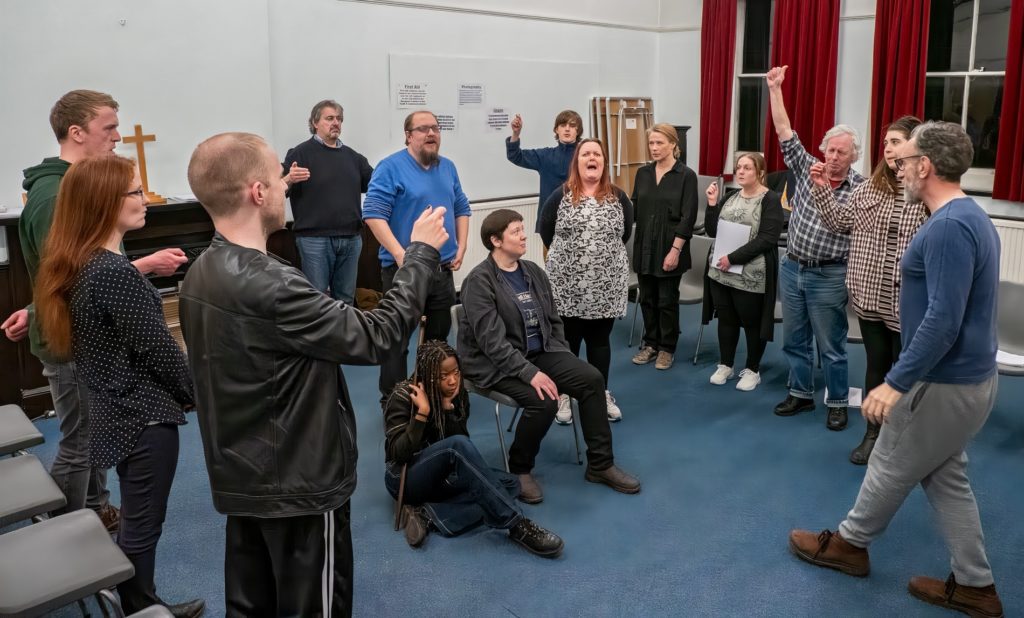
What attracted you to working with York Shakespeare Project, as the outset of the 25-year phase two?
“The opportunity to re-boot YSP’s cycle of the canon was very attractive to me. I’m someone who always wants to go either first or last, to set the bar high or to leave everyone with something to go home with.
“YSP have been very supportive of my attempts to bring a contemporary Richard to the stage – I have a stellar cast and crew – and as far as I’m concerned, it’s a partnership that has worked very well. I have nothing but enthusiasm for YSP’s commitment to producing Shakespeare’s remarkable output.”
Discuss how Laurence Olivier and Ian McKellen’s screen portraits – 40 years apart – of Richard as “a petty, narcissistic and vengeful psychopath” have prompted you to stage a modern-day Richard III in the House of Commons to highlight parallels with the politics and politicians of today.
“If the above clutch of adjectives sounds familiar, we need look no further than contemporary British politics, which is why I have decided to set my version in our parliament.
“Telling Shakespeare’s Richard through what is comfortably the most corrupt institution in the country, the play – and I hope my interpretation of it – explores the cut and thrust of power’s crucible, with laws ignored and lies sown.
“I believe that a parliamentary production of Richard III is not only long overdue, it’s also bang on time. Prepare, then, for British politics as played out, murderously, on the floor of the house.”
This production forms part of the York International Shakespeare Festival, and you have experienced an international career as a diplomat and theatre director. What makes Shakespeare’s work so universal?
“I’ve seen Shakespeare performed across the globe in many cultures and languages. I’ve also taught his work in America, Europe and Asia. Actors and students well know there’s never been a storyteller like him.
“Shakespeare takes our humanity, creates recognisable conflict in recognisable people, which often – in tragedy at least – leads to dire consequences. He also shows us what love is and what love isn’t, hate too, and what loss means and how joy and comedy can elevate our lives. In doing so, he expands our understanding of what makes us human and offers us ready advice as to how we can survive such a troubling condition.
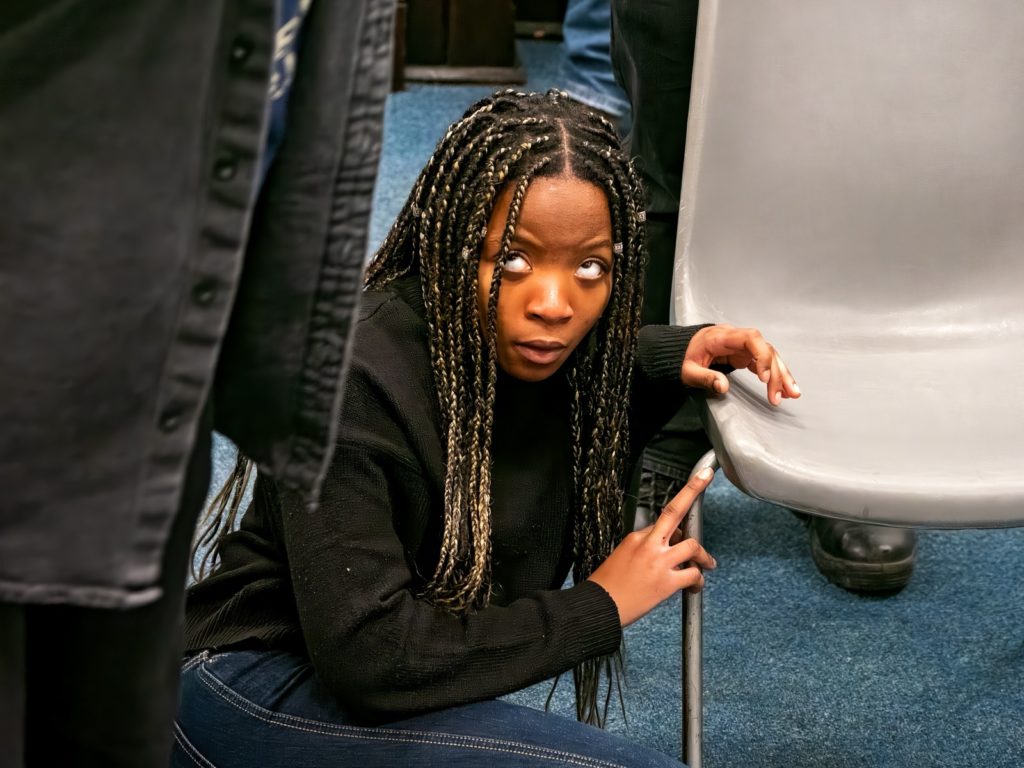
“In 2012, Shakespeare’s Globe in London produced 37 of Shakespeare’s plays in 37 languages, including Maori, Swahili, Pashto and Mandarin. A quick glance at Wikipedia reveals 140 Shakespeare festivals in the United States alone. It’s hard to argue against that kind of reach and durability. He’s doing something right for sure.”
What are the tenets of the True and Fair Party, for whom you are the prospective parliamentary candidate for York Outer?
“There’s no point in continuing to drink from the well if the water is poisoned. Essentially, Gina Miller’s True & Fair Party came into being to clean up the UK’s polluted politics and to propel national governance into the 21st century, with more accountability, openness, and a focus on a kinder, more empathic way of doing business.
“The party also has a broad swath of unique and compelling manifesto commitments, such as introducing legally binding contracts for MPs, switching to the proportional representation the country is crying out for, or banning the sale of alcohol on the parliamentary estate.
“But first and foremost, the party is committed to disinfecting our country’s political slurries and to showing the electorate that not all politicians are in it for themselves; that there is desire and energy for meaningful change.
“These are the tenets that drew me to True & Fair, and so I’d like to show the voters of York Outer that a better, more compassionate and caring way is possible.”
Find out more at: https://www.trueandfairparty.uk/daniel-roy-connelly
What topics do you discuss with Hugh Bernays in a typical episode of your made-in-York weekly podcast The Anarchist Monastery?
“Hugh and I have just started our podcasting journey in a place we call The Anarchist Monastery, where we have a weekly discussion of our lives here in York – both of us as outsiders, one long-standing and one newbie.
“We also chat about my many global travels, our mental health and our lives as lovers of history, theatre and literature. All in all, it’s an interrogation of wayfaring. We’re learning all the time about what’s needed to make a successful podcast and we’re having a blast doing it.”
York Shakespeare Project in Richard III, Friargate Theatre, Lower Friargate, York, Wednesday to Saturday, April 26 to 29, 7.30pm plus 2.30pm Saturday matinee. Box office: Box office: ticketsource.co.uk/ridinglights.
Introducing: The Anarchist Monastery podcast
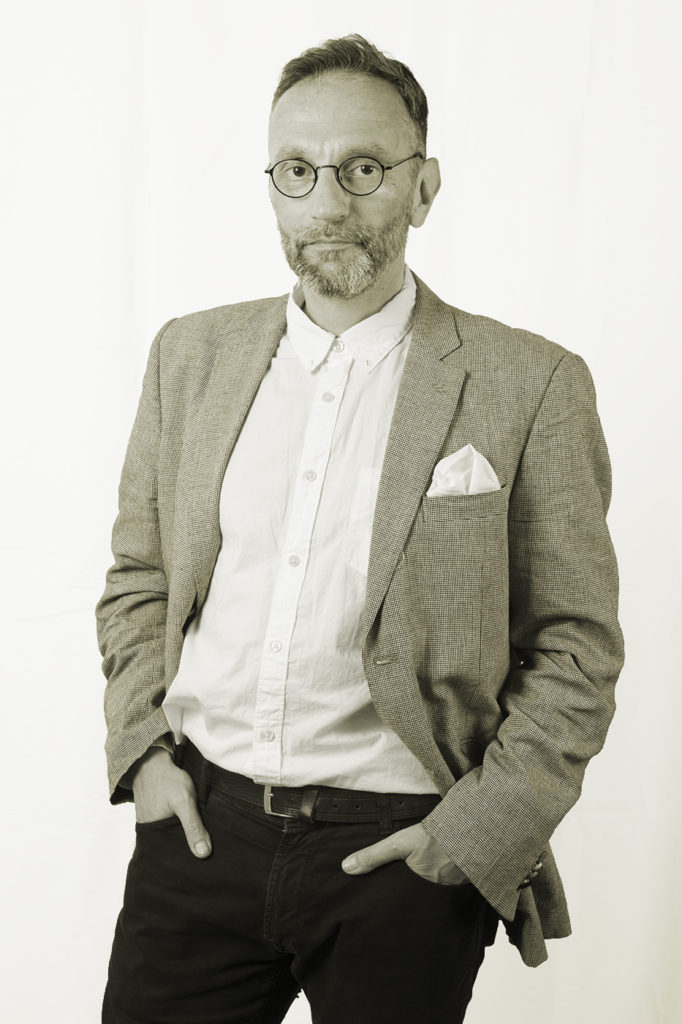
THE Anarchist Monastery is not so much a building, more a state of mind, one shared by craftsman and resident Hugh Bernays and Dr Daniel Roy Connelly, a visitor, teacher, theatre director and author.
From the 2000-year-old-city of York, Hugh and Daniel interrogate each another to try to ascertain who we are and how we got here, probing little known histories of this beautiful city in search of where ‘here’ really is.
“If you’re the kind of person who values the use of the imagination and likes to take the road less travelled in coming to an understanding of the world, The Anarchist Monastery is the podcast for you. Don’t be late – join the siblinghood,” they say.
Available on all major podcast platforms. Head to: https://podcasts.apple.com/gb/podcast/the-anarchist-monastery/id1680351791
